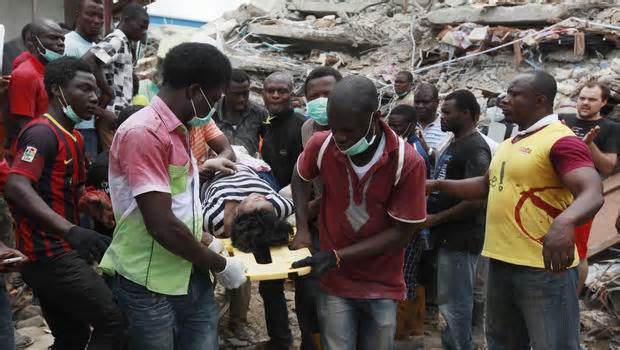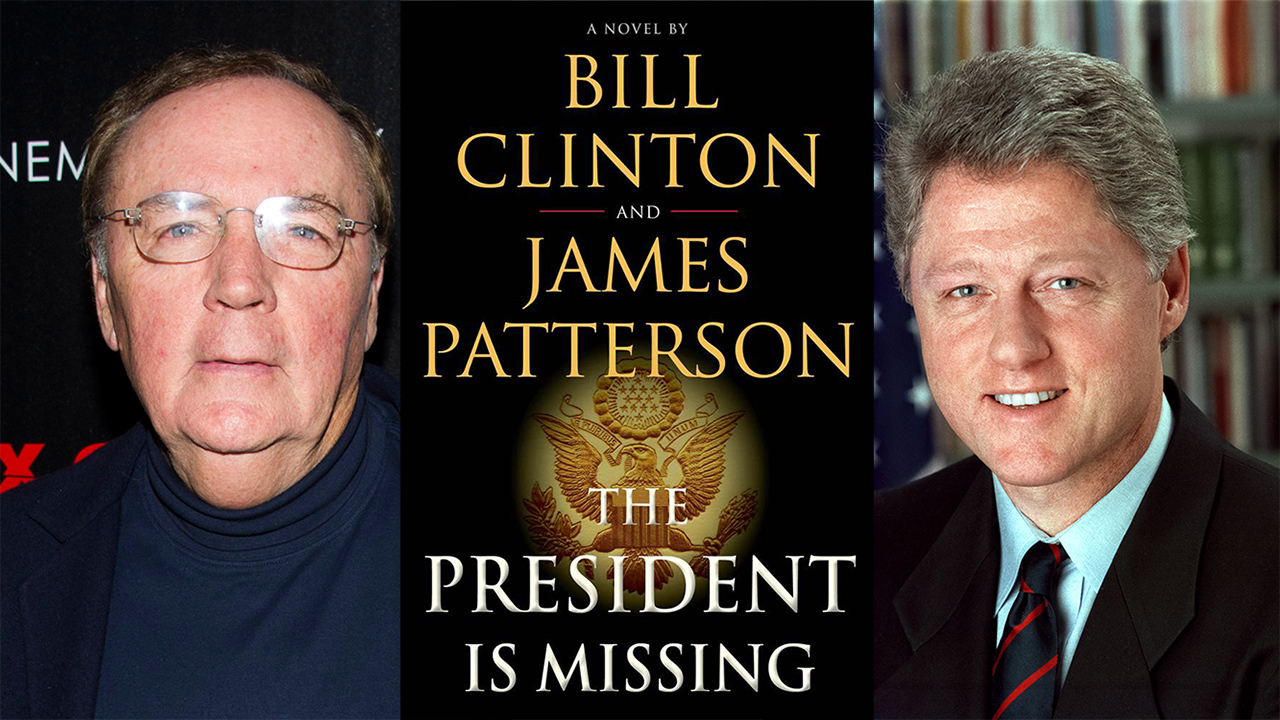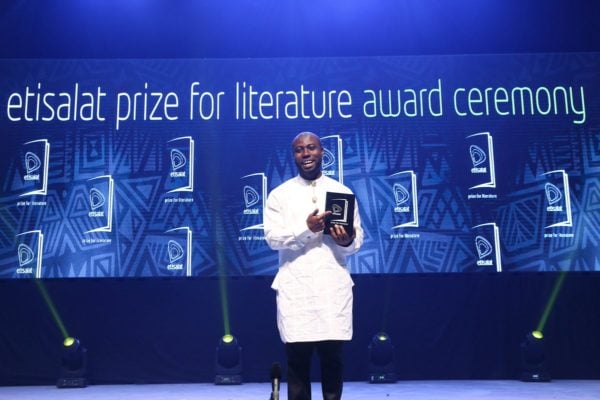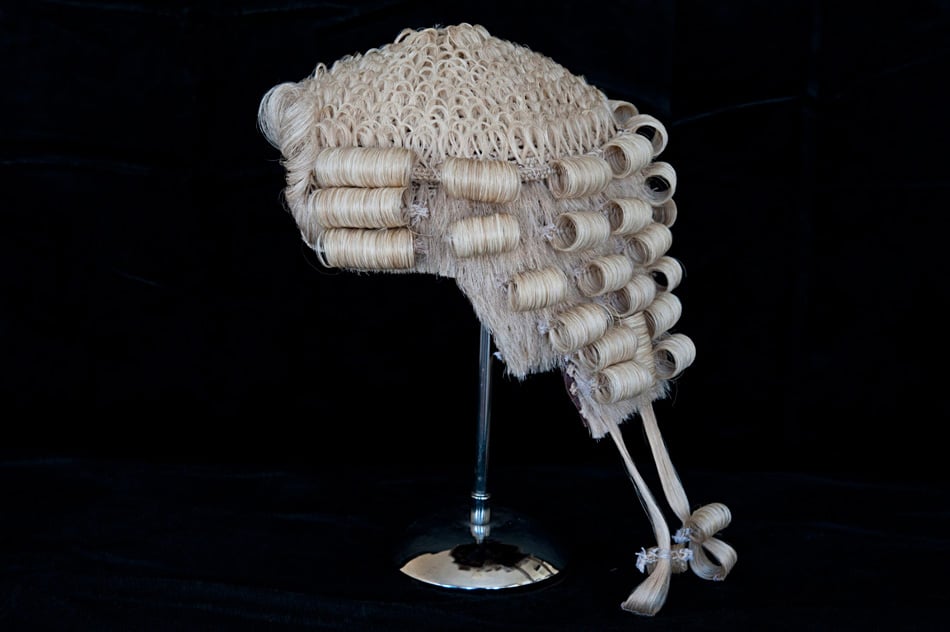By Nsikak Ekanem
Naming a church he founded, Reigners Bible Church International, Akan Weeks, the General Overseer, might have been inspired by presumptuousness or acclaimed prophesying prowess that the church would attain global recognition with faithful reigning with aplomb. Since December 10, 2016, about 16 years after the existence of the church, situated in a serene Uyo Village Road in Uyo, the Akwa Ibom State capital, many across the globe, who could not visit the church, have, at least heard, of it.
On that Saturday, the octagon-shaped church auditorium, sized about 5,143.190 square metres on a land measuring 14, 792.177 square metres collapsed while consecration of weeks as Bishop was ongoing. Amidst making headlines locally and internationally, it was considered a glitch glowing with gloom, grief, inglorious global attention and horrific images.
Several numbers of persons were reported dead while hundreds sustained various degrees of injuries. Figures mentioned in the media were staggering and differed from one another. But the government has since listed 26 lives it claims to have lost.
Mr. Udom Emmanuel, the Akwa Ibom State governor, who was one of the congregants in the collapsed church building, was among the lucky ones. His escaped by the whisker led to saving other lives as he instantly beat consequential trauma and personally supervised in rescuing the victims.
Advertisement
An eight-man commission of enquiry headed by retired Justice Umoekeyo Essang with Mrs Emem Daniel, a lawyer in the state Ministry of Justice as secretary, was inaugurated by the governor on December 15, 2016. The panel is also made of three engineers – Messrs James Utiaruk, Asuquo Okon and James Amiang. Others are Otu Umoren, an architect, Damian Abibo, Assistant Commissioner of Police, and John Linus, a “prophet”. The six-point terms of reference handed the panel borders on investigating causes of the incident, making recommendation on those found culpable and advise on measures to stop reoccurrence.
The Nigeria Police had immediately initiated investigation into the collapse structure. Seven persons, including Weeks, involved in handling various aspects of the collapsed structure were invited to the State Police Command headquarters at Ikot Akpan Abia for questioning. The other six persons were Abimbola Oke, an architect that designed the structure, Lawi Andebutop, an engineer that designed the roof structure and Emmanuel Umoh, a civil engineer from the Akwa Ibom State Ministry of Works that handled landscaping of the site. Others were Anietie Ndarake, a member of the church alleged to have supervised works to roofing level, Idorenyin Daniel, the fabricator that handled fabrication for the roofing and mounted steel truss after roofing and Uwem Okoko, who introduced Oke, Andebutop and Umoh to Week.
The Essang-led panel, which commenced works immediately it was inaugurated, had public hearings between January 3 and 20, 2017. Forty memoranda were submitted to the commission. Those that put forward memoranda were Civil Liberties Organisation, CLO, the Nigerian Institutes of Architects, NIA, Uyo Capital City Development Authority, UCCDA, the Akwa IUbom State Ministries of Health and Lands and Town Planning, the Nigeria Police, among others. 19 witnesses, including two commissioners, Dr Dominic Ukpong (Health) and Ime Ekpo (Lands and Town Planning) appeared and testified.
Advertisement
The Department of Criminal Investigation of the Akwa Ibom State Police Command, which handled the investigation of the incident made its position known to the commission through a memorandum with reference number, CR:3000/AIS/X/D5/VOL.60/199, dated January 13, 2017 and signed by Edward Ajogun, the Deputy Commissioner of Police in charge of the Criminal Investigation and Intelligence Department. The findings of the police formed the bulk of the 7-page memorandum submitted to the commission.
The police fingered Weeks, Ndarake, and Daniel. The three persons it indicted, according to the police, are being treated as suspects and on “administrative bail”. A case file in respect of the suspects has been sent to the State Department of Public Prosecution, DPP, “for vetting and legal advice”.
In tracing who did what and what went well or wrong at the public hearings of the commission, it was typical of its kind; lawyers’ arguments were thrilling and grilling; testimonies of witnesses were laced with revelations, counter accusations, just as truths and lies had free flow, tasking the panelists for a thorough sifting. There was hardly dull moments as it were also packed with humour. Gratifyingly, the septuagenarian chairman of the commission was adjudged by parties and members of the public as demonstrating qualities of an exemplary arbiter.
It was revealing that the collapsed Reigners Bible Church International structure was illegal in that it had no building permit from the Uyo Capital City Development Authority, UCCDA. In fact, the UCCDA, in its memorandum endorsed by Edwin James, the Secretary/Head of Administration, disclosed that the church was situated at the government’s “forest reserved area”, a position confirmed by Ekpo, in his memorandum and oral testimony. It was also disclosed that the site for the building of the church, “alongside other illegal structures along the corridor of Uyo Village Road”, was marked four times with “Stop Work” notices, between March 6, 2013 and July 26, 2016 while demolition notice was issued on August 16, 2016.
Advertisement
According to the UCCDA in its memorandum, the agency was unable to carry out demolition exercise owing to lack of heavy duty equipment, no security for the protection of its staff during and after demolition and “paucity of logistics”. Funds requested by UCCDA from the state government through a letter written on May 4, 2015 were not released by the Accountant General Office even after the state governor had given approval. Mentioning stubbornness and flouting of governmental authorities, which he said is prevalent in the Nigerian society, the Lands and Housing Commissioner told the panel while being cross-examined by George Udoh, lawyer from the Akwa Ibom Human Rights Community, that there was nothing the state government would have done to stop the church from erecting the alleged illegal structure.
It also came to public glare that in most cases contractual agreement was not entered into between the church and those that handled several works at the site, as a sort of espirit de corp of Christian brotherhood appeared to have informed the mutual trust. It was also learnt from testimonies of Oke and others at the public hearing that the architect’s design was jettisoned by Weeks. Part of the police findings stated that “The original structural plan capacity of the building contained 3, 000 worshipers but the founder of the Church ordered the structural engineer to extend it to 5, 000 capacity to contain more worshippers.”
At the public hearing, Weeks was not only the cynosure of all eyes but the centre of storm – questions from lawyers that tend to throw him off balance and accusations from some other witnesses that seemed to discredit his born-again-ism stance were let loose on him. In one of the three days he appeared at the witness box the commission was forced to be on unannounced minutes-of-silence owing to rivulet of tears that dropped down from his face.
While being cross-examined, it was stunning also to hear from Weeks that he was “already consecrated a Bishop in 2015” by Assembly of Charismatic Bishops and that the December 10, 2016 event was for “enthronement”. Regarding the title, Doctor, also affixed to his name, he disclosed that he got it on account of his “humanitarian services” from “Niger Delta Youth Organisation”.
Advertisement
In cross-examination led by Clifford Thomas, a lawyer and chairman of CLO in Akwa Ibom, the cleric, who said he got born again on October 3, 1995 in Lagos, attributed rising profile of his church finances to the population of the church assuming “a steady unprecedented growth within a span of few years”, a development he said saw to the need to “begin a plan to build a more accommodating church auditorium (and that) the need to expand the church hall was matched by an unbelievable wind fall of financial resources for the church.”
Perhaps, in sync with the Biblical instruction of let-not-your-left-hand-knows-what-the-right-hand-does, he refused to disclose the sources of the church funding. Though appearing to have financial figures at his finger tips, he had no idea of numerical strength of the church membership. According to him, non-taken of attendance is deliberate. His claim of having no idea of the numerical strength of members of the church informed Thomas to put to him that he pays premiums to what proceed from his members’ pockets at the expense of their personal welfare.
Advertisement
The fabricator admitted that construction works at the site were not completed as at the time it collapsed and that the normal thing of certifying completed by a consulting engineer was, therefore, not done. He denied removing it even as he accused Weeks of threatening to slap him if he refuses to do it. He mentioned one Engineer Eshiet as the one that removed the scaffold on the instruction of Weeks.
According to the police findings, “Weeks was said to have interfered with the construction of the building by ordering” Daniel “to remove the supporting scaffolds holding the steel roof truss from collapsing while the construction was ongoing. He allegedly made the order to create additional space to accommodate more worshippers and visitors expected to be attracted by dignitaries, including the governor”.
Advertisement
Andebutop, corroborated Daniel on threat of slap from Weeks. Udoh, also accused Weeks of threatening to cause him to lose his job at UCCDA for allegedly indicting the pastor to the police. The police also averred that the General Overseer “inordinately undermined the professional advice given by the roof contractor/structural engineer on the danger the removal of the scaffold might cause”.
Weeks argued in his memorandum that his Bishopric ceremony “was not the reason for the building and the ceremonies had no iota of influence on the construction, timing or duration”. The memorandum endorsed by Weeks’ lawyer, Ini Ekpo, further stated that nothing was done in a hurry as the construction activities started almost two years ago.”
Advertisement
Weeks’ lawyer argued that “Neither the church nor Apostle (Dr) Akan Weeks is an engineering firm and cannot pretend to acquire the requisite technical know-how to engage on the construction of its permanent building”. On possible cause of the collapsed structure, the church mentioned that it was “beyond our human comprehension”. According to the Police, which concluded that “the whole disaster would have been avoided had the right thing be done”, “There was no qualified structural engineer to supervise the building to ensure that its integrity was not in anyway or manner compromised.”
However, in an interview with this reporter at the end of the public hearing, Weeks’ lawyer said that “If there was human error somewhere along the line it cannot be blamed on him (Weeks)”, adding that “he trusted people to do the work for him and he trusted proper engineers, architect and all of that.”
On scores of dead reported by the media, Ukpong told the commission that in a disaster of that nature there is likelihood for those without medical expertise to count unconscious persons as dead bodies. He recommended the need for government to “beat the press by addressing the public immediately.”
Considering alleged illegality of the site of the church, how proper was the governor’s attendance. The Commissioner of Lands, in response to this reporter’s quest, hinged the governor’s action on his inalienable rights, saying, “Everybody is free to assemble anywhere”. Uwemedimo Nwoko, the State Attorney General and Commissioner for Justice viewed differently. Speaking exclusively with this reporter, he absolved the governor of not being aware of the issues surrounding the site of the collapsed church structure, arguing that “It would be highly presumptuous and unfair for somebody to believe that because a particular wing or arm of government has taken a decision somewhere that the governor should have been aware of it”.
Alluding to likelihood of some relevant government officials being found wanting of properly briefing the governor, Nwoko said: “It is not just the officials and the ownership of church alone that are being investigated. It is all embracing and there is a holistic approach to finding out what role did each person play, including government officials”. He assured that the work of the commission would not be another ritual as he said the governor is “passionately committed” to the works of commission and that those found culpable would be made to face the law.
Meanwhile, Thomas has raised alarm of alleged plot to thwart the commission’s findings. Briefing newsmen recently in Uyo, the rights activist said that the commission had not followed due process of calling lawyers to address the commission before winding down public hearing. Apparently agreeable with the envisaged global dream of the church, the CLO and Akwa Ibom Human Rights Community, as hinted by Thomas, may resort to the International Criminal Court, ICC, to seek justice for the estate of the dead if “several dead persons and the injured are not properly compensated”.
Ekanem lives in Uyo and kept dates with the public hearings of the commission
1 comments







the state commission of enquiry been set up by udoms administration, will not in anyways bring justice to those bereaved families whose suffered mentally otherwise because of their lacks of defenced,of which I believed the said commission has been ceased to exist. because I see no reasons why the Church is still running most of it activities in disguise by it new name(united intercessory).